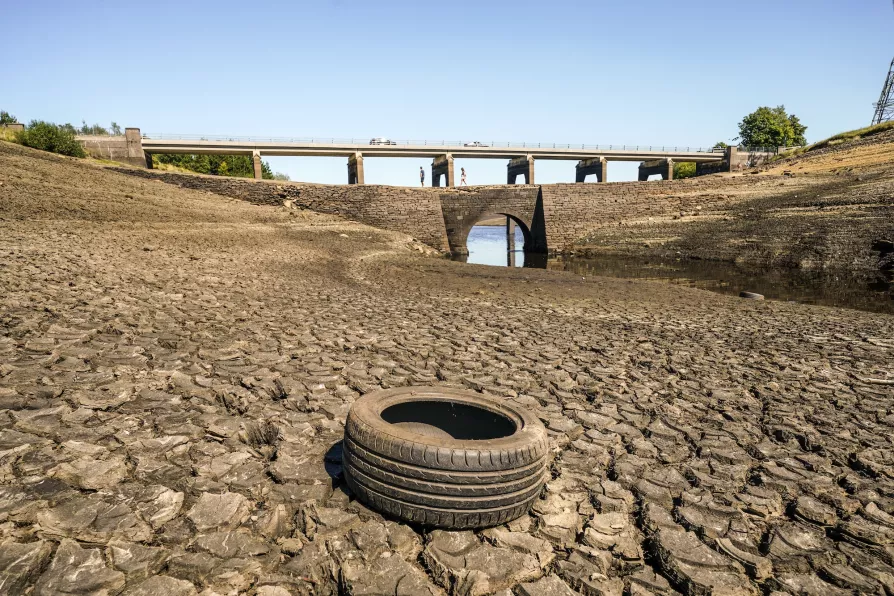As tens of thousands return to the streets for the first national Palestine march of 2026, this movement refuses to be sidelined or silenced, says PETER LEARY

 Dry cracked earth at Baitings Reservoir in Ripponden, West Yorkshire
Dry cracked earth at Baitings Reservoir in Ripponden, West Yorkshire
IT’S easy to forget the complex system by which water ends up coming out of our taps.
Towards the end of Ulysses by James Joyce, Stephen Daedalus and Leopold Bloom have just finished a lengthy drinking session, and have returned to Bloom’s house.
Bloom fills an iron kettle with water from the tap in order to prepare cocoa. Joyce describes in exacting detail the causal chain that delivers water into Bloom’s kettle: all the way from the 2,400 million gallons of “Roundwood reservoir,” through a “subterranean aqueduct of filter mains” constructed at a cost of “£5 per linear yard” and eventually through a system of “relieving tanks” down into Dublin.
By including this lengthy description — over 200 words long — Joyce emphasises the communality of even the intimate, personal act of filling a kettle.
Society contains millions of superficially isolated personal decisions: a late-night cup of cocoa. But Joyce knew that by including the wider perspective, he could demonstrate that these small acts in fact rested on vast networks of co-operative endeavours.

'A wholesale betrayal of the people and our environment'













